Bell Bank
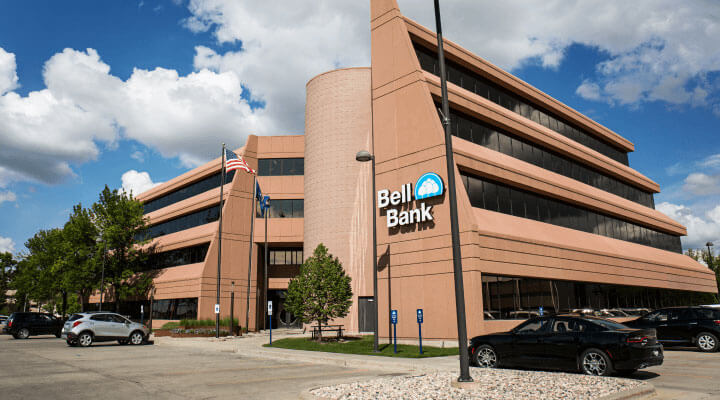

Backblaze's ease and simplicity of use made much more sense to me compared to something like AWS or Azure. There was a real comfort factor with Backblaze.
Lon Keller, Studio Director & Senior Editor, Bell Studios
When Bell Bank acquired their video marketing agency, they took the opportunity to overhaul the new studio’s data storage infrastructure. Previously, individual edit bays without workable shared storage led to lots of data duplication, and everything was backed up to a Linear Tape-Open (LTO) system that took too much time to manage.
Freshly minted Bell Studios installed a Jellyfish Rack for shared on-site storage and added Backblaze B2 Cloud Storage for active archiving and daily backups. After meeting rigorous standards for data privacy set by the bank’s compliance team, they mirrored data in the cloud using Backblaze Universal Data Migration, sending daily backups to two Backblaze B2 buckets—one for daily production and one for archives.
The Bell Studios’ team has instant access to any footage or projects in the archive—they don't have to search through a tape library to find what they need. Daily backups are automated, allowing them to spend more of their time flexing their storytelling muscles. And everything clears the bank's compliance requirements while providing a disaster recovery solution they couldn't match with tape.

Bell is the largest family- and employee-owned bank in the upper Midwest, and one of the largest in the nation, with assets of more than $10 billion. In 2021, the bank acquired its longtime video marketing agency, renaming it Bell Studios. The Bell Studios’ team focuses on finding unique ways to tell the story of Bell, its offerings, and its culture, while also maintaining a handful of other legacy clients.
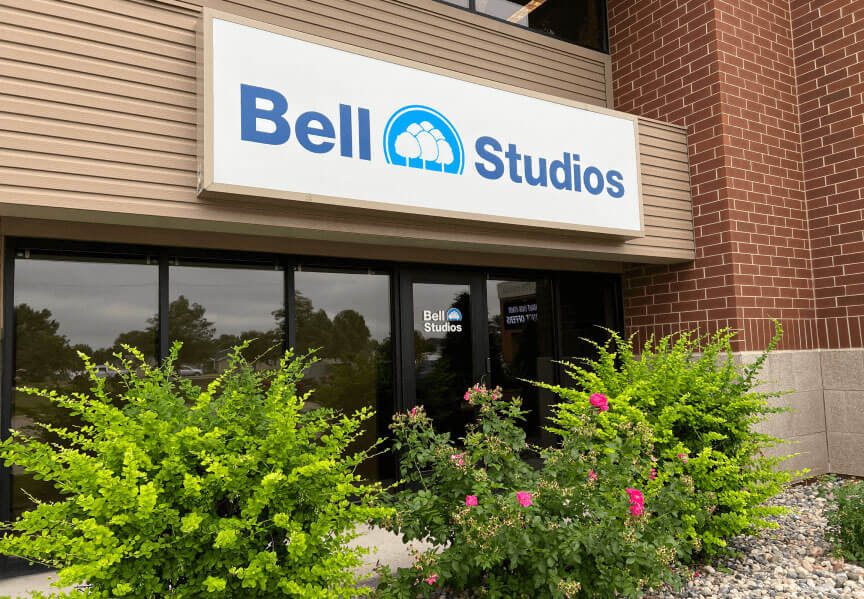
When one thinks of a major bank or financial institution, an in-house marketing and production studio probably isn’t the first thing that comes to mind. But that’s what makes Bell Bank and Bell Studios so unique.
The bank was a longtime client of Lon Keller and his creative video team, and the working relationship was always a fantastic one. After years of working together, the head of Bell Bank let Keller know if the situation was ever right, they’d love to bring the team in-house. In 2021, that time came, and Bell Studios formally became a part of Bell Bank with Keller as the studio director and senior editor.
The studio team works on creating content for various aspects of the bank’s marketing. From a holiday party with 4,000 attendees and a performance by iconic rock band Journey to customer testimonials and other bank initiatives, Keller and his team generate a ton of great content and a growing amount of data every year. Even for a small team, their data was growing exponentially and becoming a bigger and bigger burden for the creative team to deal with. Here’s how Keller streamlined the process and set the studio up for future success.
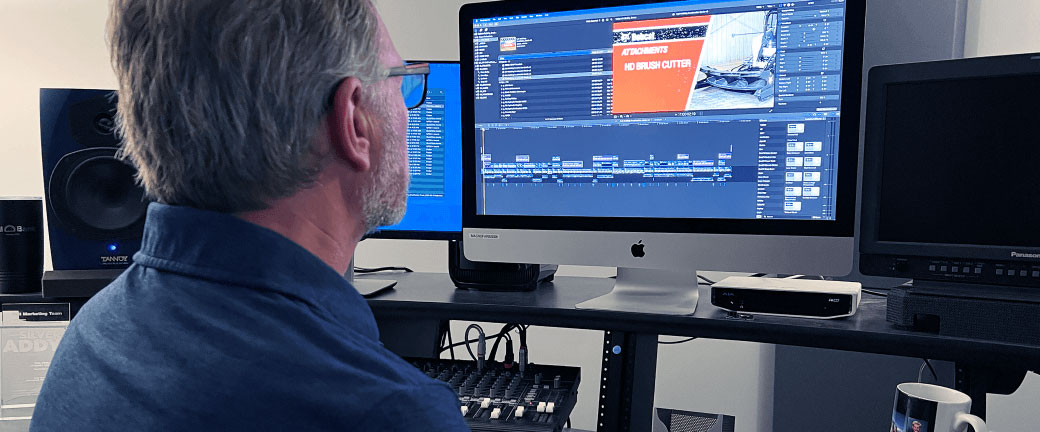

Managing LTO tapes is a gigantic time suck, especially if you don't have an automated process. We had a stand-alone drive, so I made the tape, managed the numbering, and ran the backup myself.
Lon Keller, Studio Director & Senior Editor, Bell Studios
The team initially used G-SPEED Studio XL with a Redundant Array of Independent (or Inexpensive) Disks in individual editing bays where they kept active production data, allowing team members to press ahead independently. But as their volume increased, the separate bays for each team member led to a proliferation of duplicate files which used much more storage than was necessary.
The LTO system was there to back up production data and store archives. As the studio director, data management fell on Keller’s shoulders, and it sometimes took a full two days to create the backup tapes. At times, he was backing up every two weeks and realized he was spending more than 400 hours per year on data management—time he either had to add to his day or steal from client projects.
They cataloged tapes using a PDF document, which meant finding any footage or projects involved manually searching through the PDF directory and hoping you pulled the right tape. “Managing LTO tapes is a gigantic time suck,” he said, “especially if you don’t have an automated process. We had a stand-alone drive, I made the tape, managed the numbering, and ran the backup myself.”
While Keller acknowledged tape can still be a viable, secure solution, the system was inefficient. He needed a simpler, more efficient solution that didn’t require a dedicated person to manage it. Working from a growth mindset, he also wanted to future-proof his setup to make onboarding new team members seamless.
Not long after being acquired by Bell Bank, Keller set out to find a solution that required a much lighter lift from him and his small team. “We came on board to help drive what Bell wants to do in terms of video,” he said. And that didn’t mean spending hours and hours simply focused on backing up their work.
In the exploration process, Keller tried to exhaust every avenue to make sure he landed on something that would work for both his team and the bank, including the bank’s IT and compliance teams. A new solution needed to handle their current scale and expectations for significant growth over time. It had to allow for easier collaboration, and backups needed to be automated.
After much thoughtful consideration, Keller installed a Jellyfish Rack to replace the individual edit storage arrays. The Jellyfish Rack system is built with media teams in mind. It can hold up to 80TB of raw data and can expand up to five times in capacity as needed—it would meet the team’s needs for many years to come. It also offered an on-board backup component, and it enabled seamless collaboration across the team, eliminating duplicate files and making it much easier to add new team members.

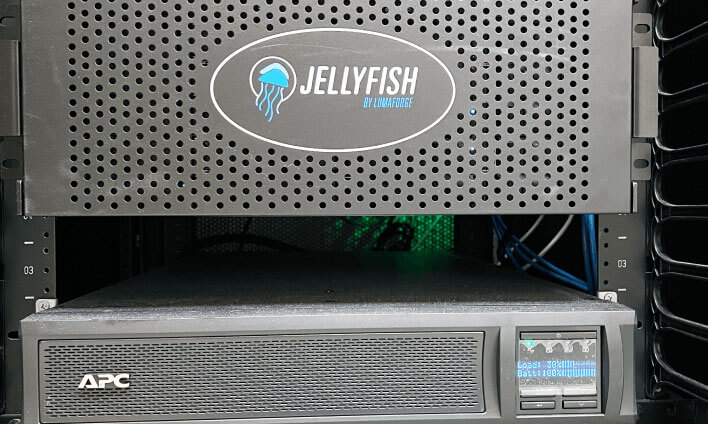
With on-site storage settled, Keller turned his attention to finding a backup and archive solution to replace the tape system. Since the LTO system lived on-site, one piece of the puzzle that was always missing for the team was disaster recovery. They didn’t want to continue operating with that kind of risk. By deploying cloud storage as their backup and archive solution, they could protect their data from local disasters like fire, theft, and damage.
Keller was familiar with Amazon Web Services (AWS) and Azure, but felt Backblaze was a much friendlier cloud storage solution for a video production environment. “Since I’m the one who has to get it set up and show others how to use it, Backblaze’s ease and simplicity of use made much more sense to me compared to something like AWS or Azure,” he said. “There was a real comfort factor with Backblaze.” The decision was easy for Keller, he just needed buy-in from Bell Bank’s IT team and compliance team.
Working inside any financial institution brings with it a number of compliance issues to take into account. Even though Keller and his team focused on marketing projects, they still needed to clear the same bars that applied across the bank due to issues around personal identifiable information and financial information. They needed to certify the types of data being transferred, to be able to control which ports were open, and to ensure the level of encryption was sufficient. The bank’s IT department is top of the line, and after mapping out the flow of data and looking into Jellyfish and Backblaze, they felt very comfortable with the solution.
Keller’s goal was to get B2 Cloud Storage up and running as soon as possible to back up active production data. They used the Backblaze Universal Data Migration service to complete the migration via a Backblaze Fireball they loaded and shipped to the Backblaze data center. This initial migration essentially cloned the Jellyfish device so they could then perform incremental backups moving forward. Now, anything they change on the Jellyfish on a daily basis is part of the automated backup to Backblaze B2—a far cry from the laborious process of years past.
The Jellyfish sends automated backups to two Backblaze B2 buckets—a daily production bucket and an archive bucket. Every six months to a year, they plan to close down an archive bucket and start a new one to keep things organized. Keller explained they’re basically thinking of archive buckets as LTO tapes, just in the cloud. Later, they can go back through the buckets to find archived projects based on dates.


We don’t have to worry about getting data onto a tape and then to an off-site location. As soon as we upload it onto our system, it’s moving off-site to Backblaze B2, and the data is safe.
Lon Keller, Studio Director & Senior Editor, Bell Studios
Next, they’re diving into a transfer of the older archive data that’s still stored on tape in the office. Having that archive accessible in cloud storage will be valuable to the bank for historical purposes.
One big reason Keller was looking for new storage solutions is because he sees a lot of growth in Bell Studios’ future—in both the types of content they want to create and the literal size of the team. He is hoping to expand their animation capabilities and wants to continue to expand into unique kinds of visual storytelling to convey the ways that Bell Bank is impacting its community, its country, and really, the world.
Keller and his team have more than 100 years of experience between them, and they have all been working with Bell Bank in some capacity for over 15 years. That’s a lot of institutional knowledge, which is great, but when someone new joins the team they need a way to access past projects too. With shared storage on-site and reliable off-site cloud backups and archives saved in Backblaze B2, new team members have access to everything they might need right from their workstations.
The move to Backblaze changed the workflow game for Keller and his team almost immediately. “The biggest positive about the new system was not having to worry about backing up,” he said. “It’s just there in the cloud. Truly, it was a game changer.” Not only did Keller eliminate the tedious process of making LTO tapes, but he solved for his other issues around data protection with Backblaze as well. “I’d rather have our backups online and stored safely off-site. Backblaze made that simple for us,” he said.
Time has been freed up for more creative endeavors, and they feel secure in how their data is being stored. Everybody wins. Now, when someone on the team returns from a shoot, they can offload the video cards onto the Jellyfish right away and know that it’s going to be backed up in the cloud. “We don’t have to worry about getting data onto a tape and then to an off-site location,” Keller said. “As soon as we upload it onto our system, it’s moving off-site to Backblaze B2, and the data is safe.”


The biggest positive about the new system was not having to worry about backing up. It’s just there in the cloud. Truly, it was a game changer.
Lon Keller, Studio Director & Senior Editor, Bell Studios
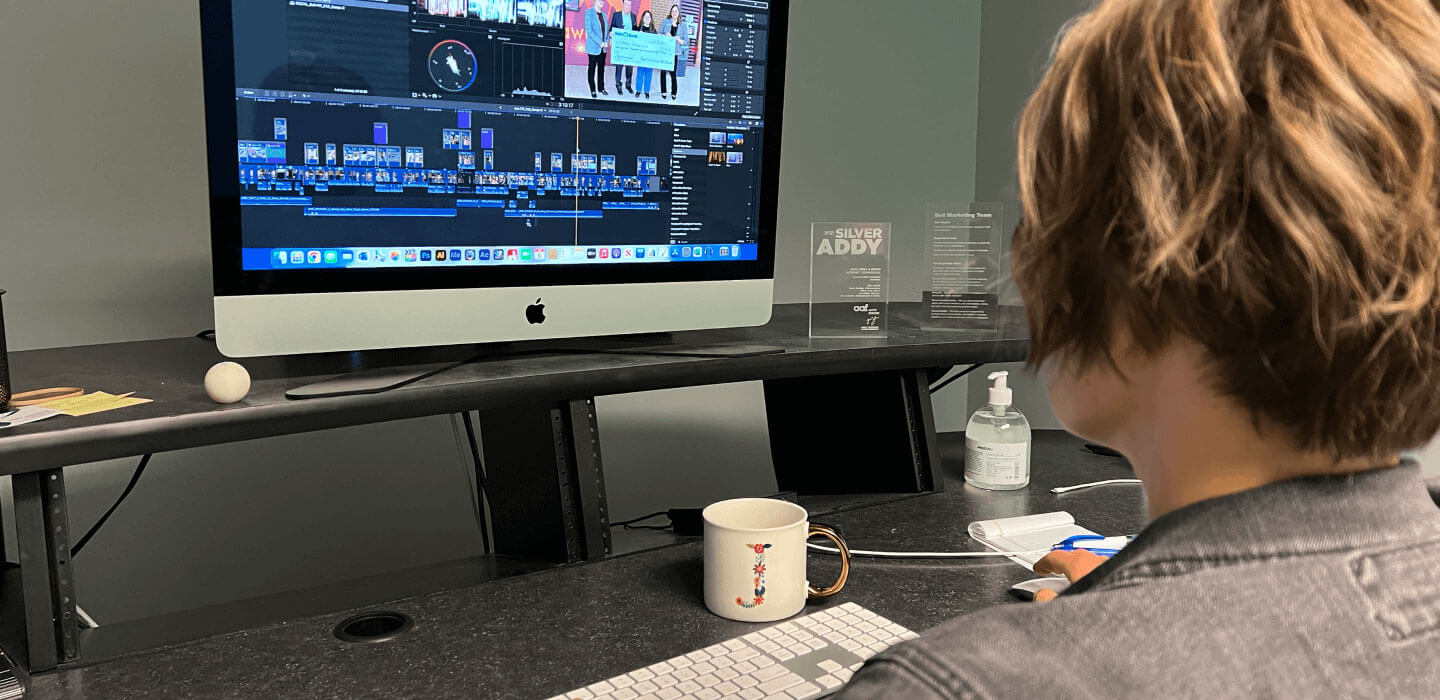
The Backblaze B2 Storage Cloud is purpose-built for ease. It offers always-hot, S3 compatible object storage that supports your workflows via third-party software integrations, APIs, CLI, and web UI. And it’s priced for easy affordability at rates a fraction of other cloud providers. Businesses in more than 175 countries use the platform to host content, build and run applications, manage media, back up and archive data, and protect and recover from ransomware.